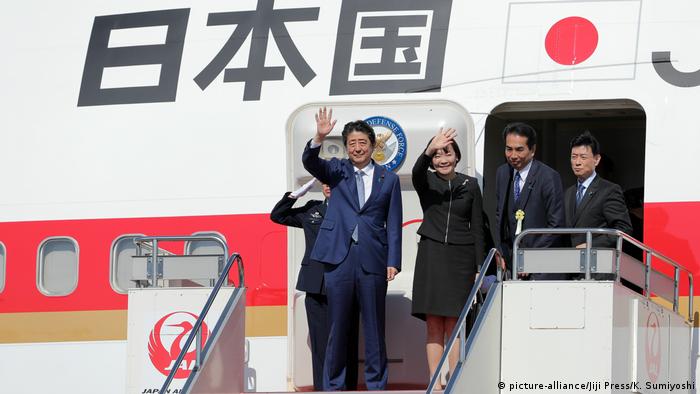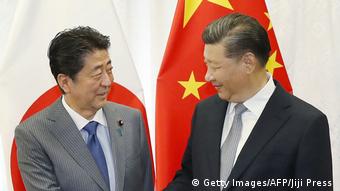The trade and political rapprochement between China and Japan brings a new dynamics in the world economy? This explains Interview Hanns Günther Hilpert from the Foundation for science and politics in the DW.

Deutsche Welle: Mr. Hilpert, in the Background of a trade war between the US and China now wants to toast Japan’s Prime Minister Shinzo Abe, the most important U.S. allies in Asia, during his visit in Beijing, new economic cooperation. A long ice age ends economies in the diplomatic relations between the two largest Asian economies. How do you see this rapprochement?

Hanns Günther Hilpert
Hanns Günther Hilpert: It is very large there exist foreign and security policy, the differences between Japan and China. It comes to the territorial dispute over the Senkaku or the Diaoyu Islands, which both sides make claims. Also, there are unresolved historical questions about the Second world war and the Japanese-Chinese war in the last century.
But both countries have found that economic disintegration between Japan and China is surely in the mutual interest, in particular also against the Background of the trade disputes in China and the United States, and to a somewhat lesser extent, between Japan and the United States. It is dependent on each other. This year Japan and China have come closer in any case.
In which areas there is still Potential for the economy?
China’s interest that Japan be directly led investments in China. There was a decline over the last few years. Beijing fears that Japanese direct investment to China will be deducted, if China should fail due to the punitive tariffs as an export platform for Japanese companies in the United States.
And Japan has an interest in ensuring that China as an export market is maintained. Japan hopes, perhaps, of the one or the other lucrative contract in the framework of the silk road initiative. Japan is so far not a Partner of China’s “Belt and Road Initiative”. Therefore, the companies and foreign trade companies have the worry that you will not be able to participate in a large growing market. But the foreign and security political differences remain.

Under China’s leadership, a free trade agreement in the Asia-Pacific region, the so-called Regional Comprehensive Economic Partnership (RCEP) is being negotiated. In addition to the ASEAN countries, such as Australia, South Korea and Japan also belong to industry. The talks are Stalled. An agreement would be a clear trade political Signal in the direction of Washington. How do you see the chances of success for RCEP?
How big are the chances of success, it is now difficult to say. But in any case, you have risen.
Japan and China have a look at this agreement very different ideas and others trading to aspire to political positions. Both countries in the pairs of opposites are, in a sense. If the two countries converge, then it looks for a conclusion of the agreement better.
But of course that is not everything. There are also other actors and interests. Not least of all the other emerging countries, India and Indonesia to play a role.
Why not progress the conversation?
China and Japan represent very different positions, what should be the RCEP. For China, it is important that there is an agreement. And China would agree to accept the substance of the agreement very low Standards. The main thing is that, there is an agreement. There are countries, such as India, Indonesia, Cambodia, Laos, or Myanmar, to give no major tariff preferences and their markets may not open. And since China would probably be willing to make concessions.
Japan has always argued, if there is an agreement, then the specific substantive Standards that must be met. Japan has enforced, in the framework of the RCEP also on foreign investment in the service sector and on the protection of intellectual property is negotiated. And the opposite is, of course, a rapid conclusion. And possibly the antagonists Japan and China, then meet somewhere in the middle.

Abe and Xi in Russia in September 2018
If this new agreement should come about, it would comprise about half the world’s population and a third of global economic output. The USA would then be the outside, or?
I don’t think so, because from the looks of it then Yes, that can enforce Japan. There is also no substantial tariff preferences or trade will give relief. To this extent, the RCEP will play a agreement, actually, in the further trade development in the indo-Asia-Pacific is not a big role.
If an agreement could push the United States out of Asia, then that would be more of the TPP agreement. Or they are separated by the very restrictive protectionist trade policy of the American President. As China, Japan, and India needs to do nothing. The United States itself. RCEP would have in this context is at best some symbolic value.
Dr. Hanns Günther Hilpert, head of the research group for Asia at the Berlin science and politics Foundation (SWP).
The Interview was conducted by Cui Mu.